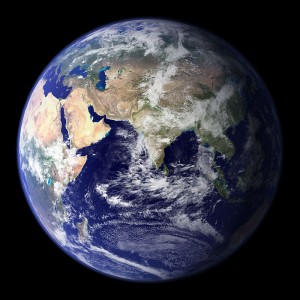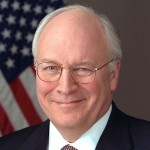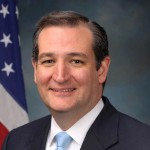Hoping to see world leaders sign a “just and legally binding” climate treaty in Paris in 2015, some Catholics bishops, from a number of continents, have signed a declaration calling for “an end to the fossil fuel era”:
We recognize that much good has happened on Earth through the rightful and responsible intelligence, technology and industry of humankind under God͛s loving care. And yet in recent decades many grave adversities such as climate change, with its devastating impact on Nature itself, on food security, health and migration, led to a great number of suffering people worldwide.
We express an answer to what is considered God͛s appeal to take action on the urgent and damaging situation of global climate warming. The main responsibility for this situation lies with the dominant global economic system, which is a human creation. In viewing objectively the destructive effects of a financial and economic order based on the primacy of the market and profit, which has failed to put the human being and the common good at the heart of the economy, one must recognize the systemic failures of this order and the need for a new financial and economic order.
Jeff  Spross reminds us that the bishops’ statement “continues a long tradition of engagement with environmental issues and climate change by the Catholic Church.” Is their radical call to reform the global financial and economic order new? Not at all. In his Apostolic Exhortation, Evangelii Gaudium, the Holy Father echoed the longstanding social doctrine of the Church:
Spross reminds us that the bishops’ statement “continues a long tradition of engagement with environmental issues and climate change by the Catholic Church.” Is their radical call to reform the global financial and economic order new? Not at all. In his Apostolic Exhortation, Evangelii Gaudium, the Holy Father echoed the longstanding social doctrine of the Church:
Economy, as the very word indicates, should be the art of achieving a fitting management of our common home, which is the world as a whole. Each meaningful economic decision made in one part of the world has repercussions everywhere else; consequently, no government can act without regard for shared responsibility. Indeed, it is becoming increasingly difficult to find local solutions for enormous global problems which overwhelm local politics with difficulties to resolve.
The world as a whole obviously includes the environment, and Pope Francis has strong words for those who would exploit and destroy our common home in the name of market ideologies, material prosperity, or whatever else:
[T]he gift of knowledge helps us to avoid falling prey to excessive or incorrect attitudes. The first lies in the risk of considering ourselves masters of Creation. Creation is not a property, which we can rule over at will; or, even less, is the property of only a few: Creation is a gift, it is a wonderful gift that God has given us, so that we care for it and we use it for the benefit of all, always with great respect and gratitude.
The second incorrect attitude is the temptation to limit ourselves to creatures, as if they can provide the answer to all our expectations. With the gift of knowledge, the Holy Spirit helps us not to give in to all of this…but I would like to return to the first wrong path…Custodians of Creation, not Masters of Creation. It is a gift that the Lord has given us, to us! We are Custodians of Creation. But when we exploit Creation we destroy the sign of God’s love for us, in destroying Creation we are saying to God: “I don’t like it! This is not good!” “So what do you like?” “I like myself!” – Here, this is sin! Do you see? Custody of Creation is custody of God’s gift to us and it is also a way of saying thank you to God. I am the master of Creation but to carry it forward I will never destroy your gift. And this should be our attitude towards Creation. Safeguard Creation. Because if we destroy Creation, Creation will destroy us! Never forget this!
As a global problem, climate change necessitates a global solution, and that solution must include a global financial and economic order aimed at the good of the Earth and of all those who live upon it–an order that inclines individuals, businesses, and governments to labor as custodians of creation instead of as masters of it.












